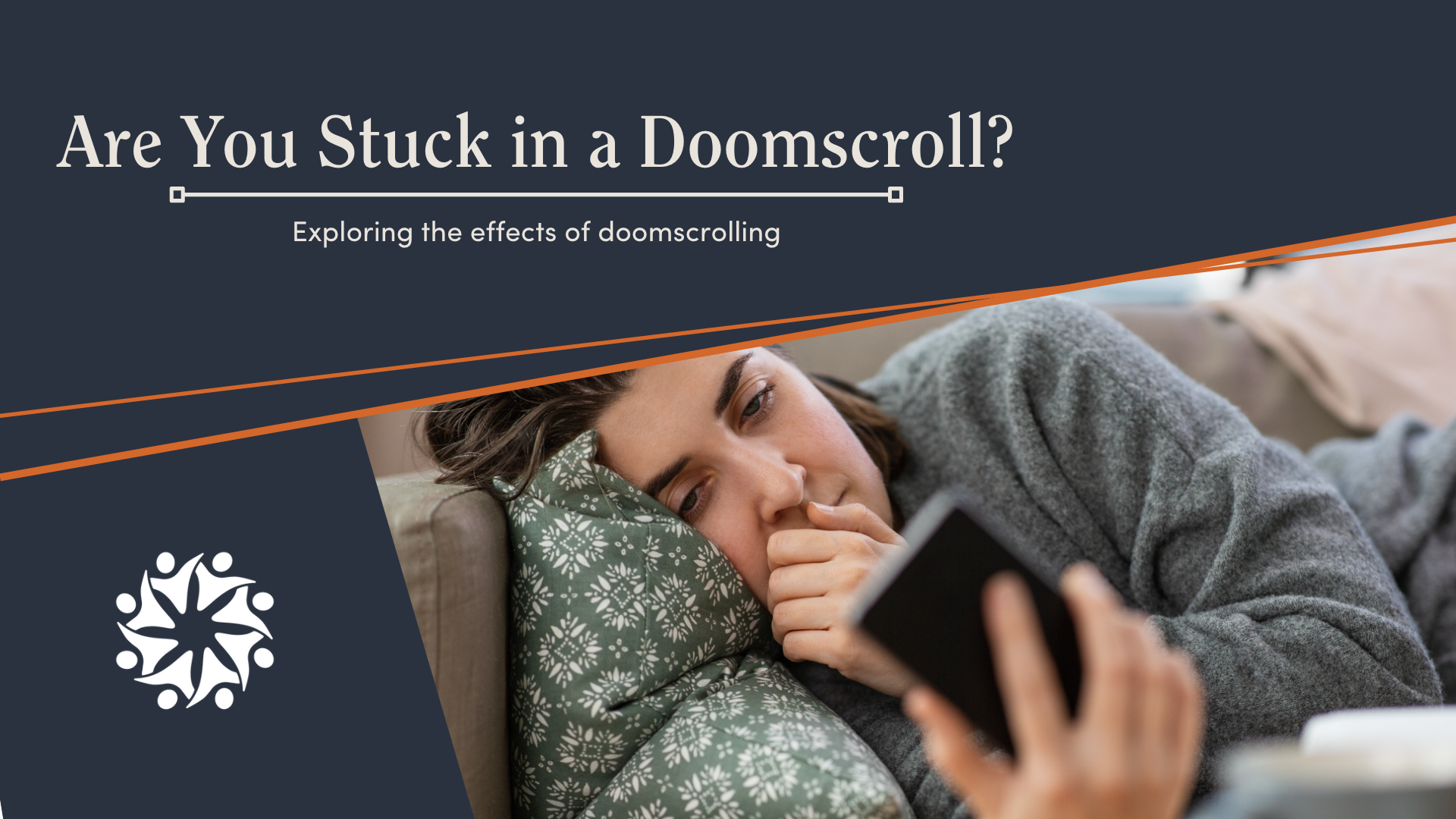Are You Stuck in a Doomscroll?
"Obsessively checking online news for updates, especially on social media feeds, with the expectation that the news will be bad, such that the feeling of dread from this negative expectation fuels a compulsion to continue looking for updates in a self-perpetuating cycle."
If you haven't figured it out already, the quoted text above is the definition of doomscrolling.
Where did it come from?
There are different ideas on when the term doomscrolling came to be, but, it seems the best guess is somewhere between 2016 - 2018. If you weren't aware of this addicting behavior when it originated, you most likely heard it in 2020 at the start of the Covid-19 pandemic.
The spread of Covid and the uncertainty of the future during period of quarantine left us all scared and looking anywhere and everywhere we could for answers. This normally led to an unconscious need to continue searching—scrolling—through anything we could find for hours on end, with little to show for it except increased anxiety and depression about our current situation.
Why do we doomscroll?
A BBC article in 2021 reviewed some of the 'why's of doomscrolling.
Knowledge
In today's culture, the internet is where the news is. If you want to stay informed, you are expected to scroll news sites and social media. This got ramped up during the beginning of the pandemic when it seemed like information was scarce, but the information that was available was constantly changing. People felt the need to constantly be plugged in to know what was going to happen next.
FOMO
The Fear of Missing Out or FOMO is another reason people tend to stay glued to their devices and media outlets. The fear is you may miss out on something big if you don't constantly know what is going on. It seems like a lot of people would rather be constantly scared and depressed by the news in an attempt to keep from missing something.
Self-soothing
This is the one that caught me off guard. How can something called "doomscrolling" be soothing? Well, have you ever driven by a traffic accident and felt a sense of relief that it wasn't you in that accident? In a scary world, it can be soothing to see the chaos happening within the comfort of your own home and be reminded that some of this is happening around you and not to you.
Trade 'doom' for 'joy'
While the act of doomscrolling can fill the need to know what is going on, ultimately it can be disasterous for your mental health. In fact, a study out of Dartmouth College found a direct relation between increased smart phone and online media usage and an increase in depression and anxiety.
So, if you find that you need to scroll, try finding media outlets and sources that share positive news stories. If you know that some people you regularly follow are generally negative, try unfollowing those people.
Experiment with different tactics to minimize the doom and see how you feel after a while. You may find that you don't miss it as much as you thought.
In the end, you find what you seek. If you are actively searching for doom—you will find doom and you will feel its effects. But, if you actively seek joy, I believe the same will happen—you will find it and you will feel it.
Go find joy!
Looking for more strategies to cut back on your smart device usage? Check out this episode of The ADHD Podcast:
Ep 2603: Setting Smart Boundaries Around Your Use of Technology
Thank you for your time and attention,
-Nikki

